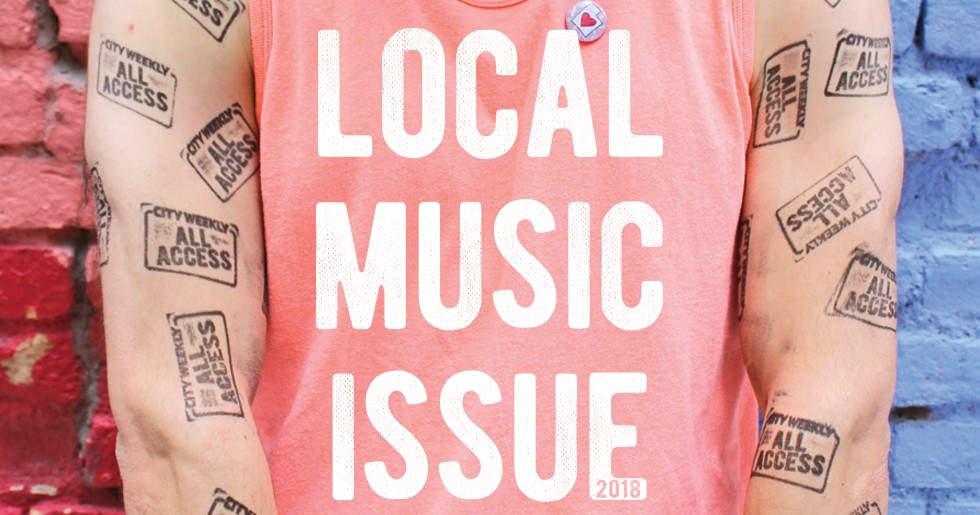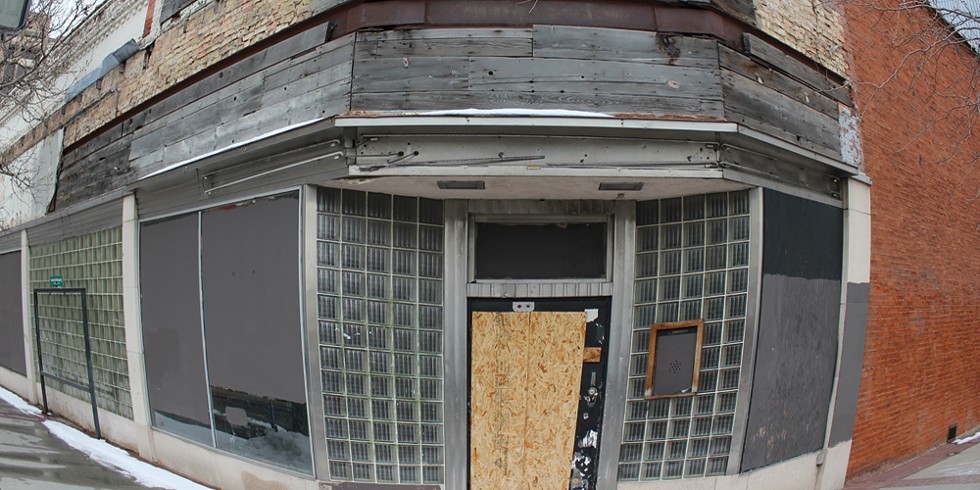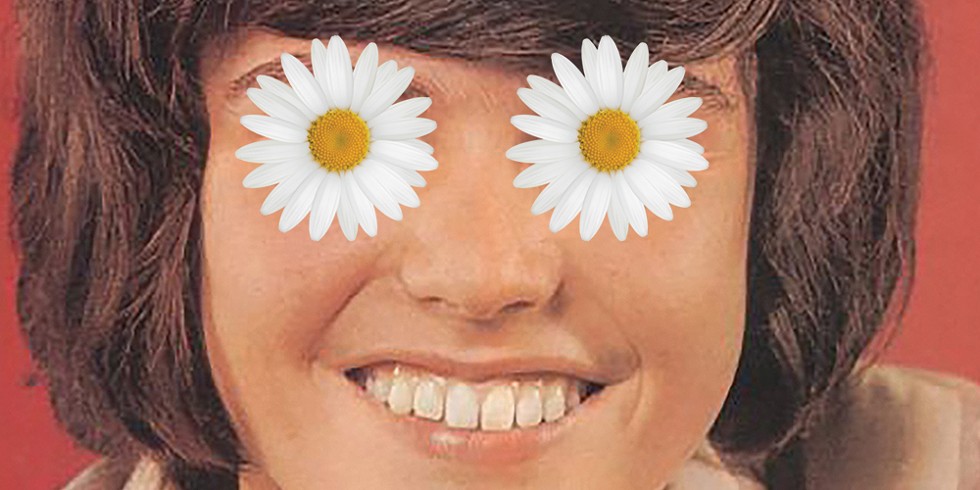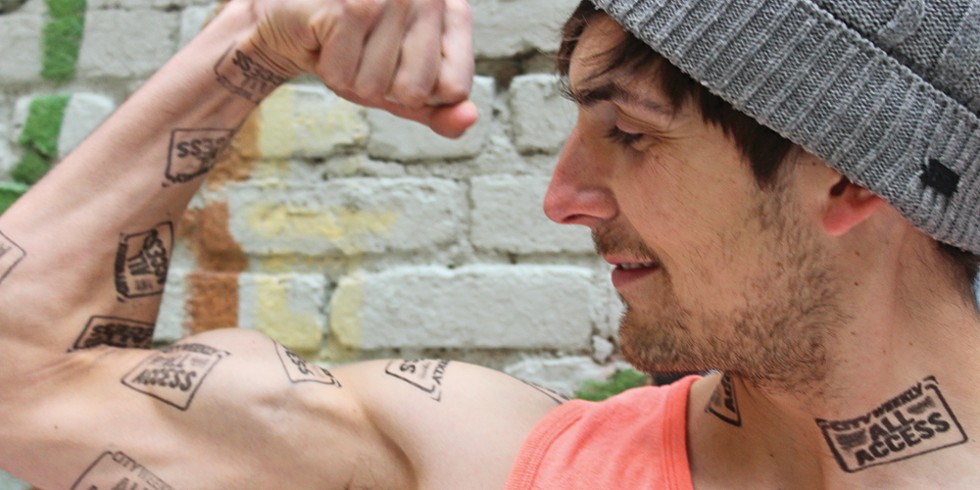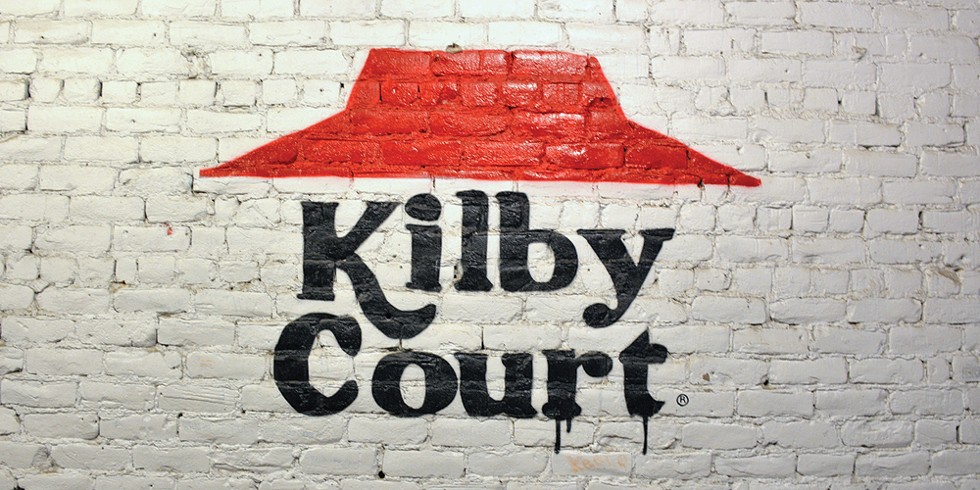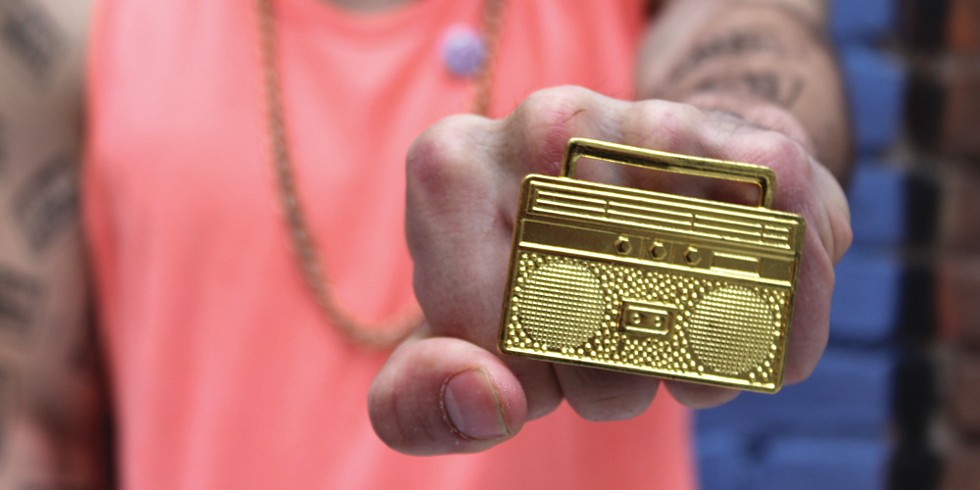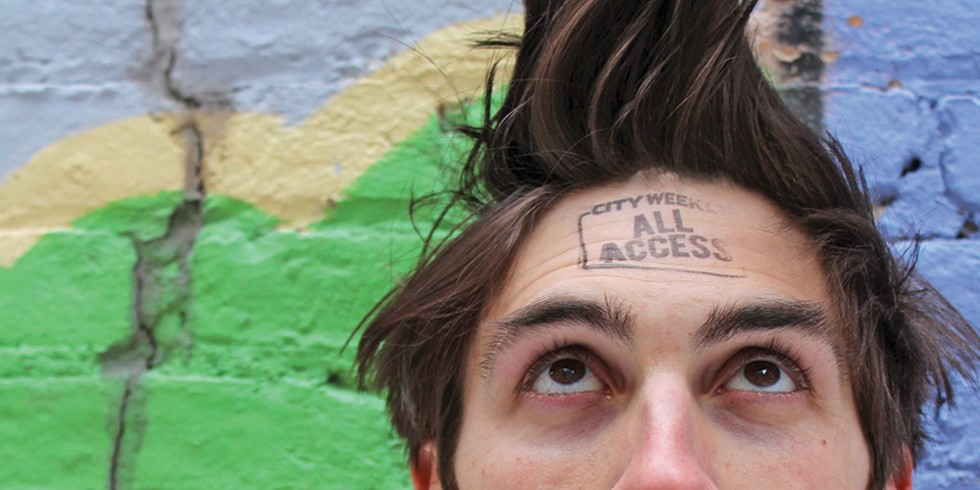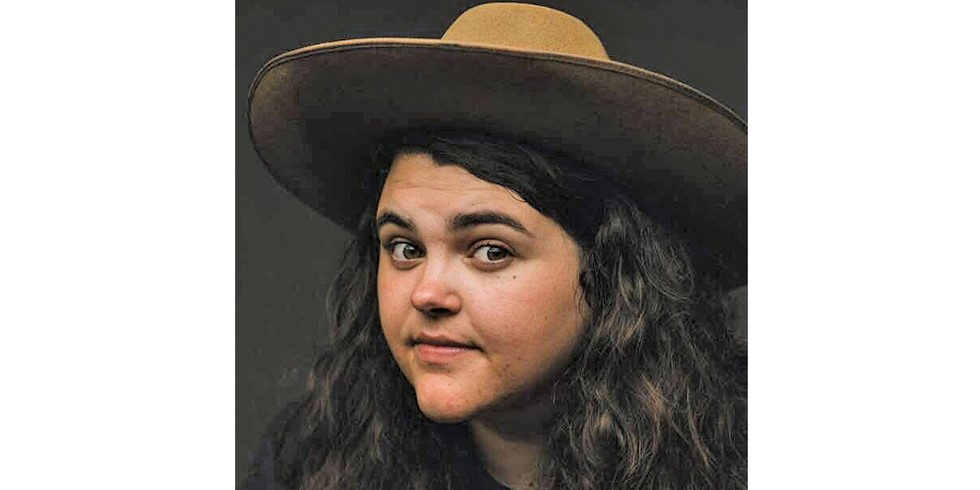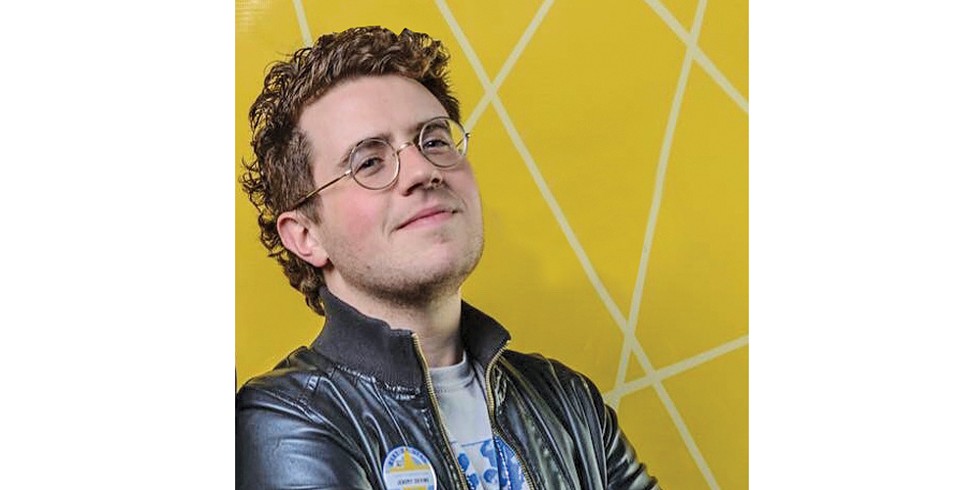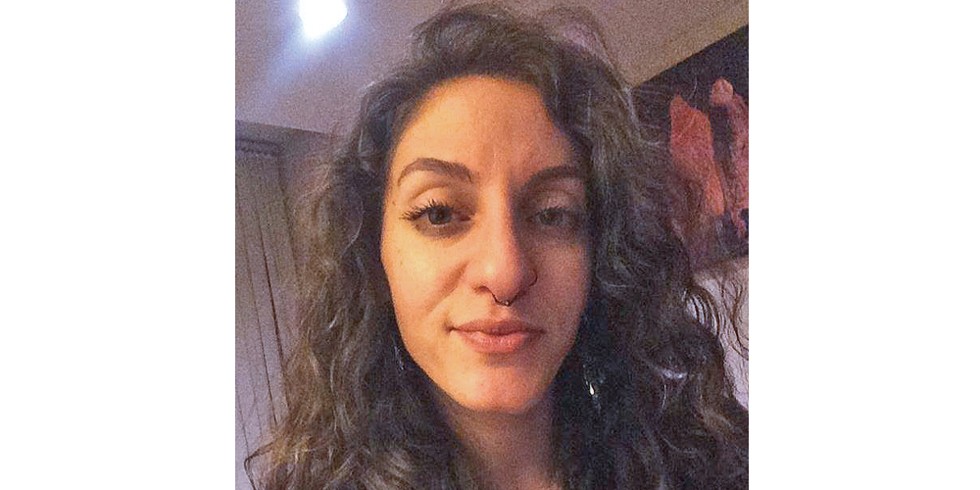Year
In last year's Local Music Issue, I reflected on my experiences in the Salt Lake City music scene as both a fan and journalist over the past 25 years. I predicted continued growth, and that, as with all local music scenes, ours would become more important in the future. I remain convinced of this—except for one thing.
A persistent complaint among local musicians is that the SLC scene is apathetic and impenetrable, plagued by cronyism and conflicting priorities. And because of this, some of our best bands seek more fertile ground elsewhere. In the late '90s and early aughts, local bands decamped to Portland. Today, they exile to Austin, Nashville and New York City.
So, the question is: How do we retain and foster locally grown talent? Perhaps the solution is a clean start—to greet the scene with new eyes and ears—so that we might appreciate anew its scope and undeniable quality.
To that end, in this issue, we offer a back-to-basics tour of some of the major music venues and access some of the most active musicians' thoughts on the scene. We also observe a fly-on-the-wall conversation between three of SLC's most prolific MCs as they discuss their experiences in local hip-hop. City Weekly music and now dining columnist Alex Springer hops on board and conducts a Q&A with a trio of top-of-their-game concert promoters, the behind-the-curtain wizards who book, run and settle shows in our clubs, theaters and arenas.
Inclusiveness is the name of the game, and in the interest of supporting all aspects of the scene, Springer also looks at karaoke and the journey of two local empty orchestra conductors who have recruited, trained and unleashed 17 karaoke jockeys into the wild now responsible for 20-plus weekly theme nights.
So, where do we go from here? That is as uncertain as Orrin Hatch in a rap battle. I will say that City Weekly's commitment to the scene is stronger than ever. Be it on our ink-stained pages or across our digital platforms, we'll continue to zoom in on the big picture to uncover, in detail, what's going on in local music and who are the folks behind it who keep it tuned. Because, if we tend to it, SLC's scene will blow up, resulting in brilliant days (and tunes) for all.
—Randy Harward,
Music Editor
Dig YR Scene
City Weekly's all-access tour of the local music microcosm. Part of it, anyway.
By Randy Harward
Good evening, everyone. My name's Randy and I'll be your tour guide and bus driver on the steering-wheel of steel. We'll start the maiden voyage of the City Weekly All-Access Local Music Tour in just a moment. First, please rise for the ceremonial song, Frankie Smith's "Double-Dutch Bus."
There's a double-dutch bus coming down the street/ Moving pretty fast/ So kinda shuffle your feet/ Get on the bus and pay your fare/ And tell the driver that you're going to a double-dutch affair!
Whoooo! That song always gets me pumped.
There should be a VIP swag bag under your seats. It contains (expired) coupons to local merchants, a fidget spinner, drink tickets (hope you like Pabst!), one of my friend Nicole's awesome cookies (I will gladly eat this if you're a diabetic) and a respirator. Also, you'll notice a nametag with your "Double Dutch Bus" name. For the duration of the ride, you will be known as either Rebecca, Lolita, Veshawn, Dawn, Bilzarbra, Milzary, Bilzetty, Kilzam, Tilzommy, Tilzerrance or Bilzobby. Now, I try not to play favorites, but Bilzobby? That's my man. He (or she) gets an extra drink ticket.
You've probably had a long day checking out Temple Square and Salt Lake City's fine collection of fast-food franchises and strip malls. Or, if you're local, working. This is where we get to the good stuff—What's that, Bilzobby? You see only 11 venues on the itinerary? What happened to "all access?" That's why I like you; you're funny. It's called "All Access" because you all get to access this bus.
One last thing: I don't have my CDL license. So, if we get pulled over—be cool.
Our first stop is located directly across the street. The Gallivan Center (239 S. Main) was the longtime home of the Twilight Concerts Series. You'll be pleased to know that, for 2018, TCS is coming home. Every Thursday night you'll get to watch a well-curated bill consisting of a touring headliner and one of our great local bands. Don't worry, fans of the Excellence in the Community free concert series—those will happen on Wednesdays throughout Twilight's summer run.
Site of Historical Significance: The Zephyr Club
As we journey to our next stop, take note of the building at 301 S. West Temple. It's the withering husk of the Zephyr Club—perhaps the greatest local music venue the scene could still have if it weren't for what we call, colloquially, "some bullshit." It's been shuttered since 2003.
Out here on the far west side of downtown is the Metro Music Hall (615 W. 100 South). It's the only place in town where you can see ferocious black metal bands in corpse paint, fierce drag queens in high-arcing eye shadow, and fresh hip-hop acts with live graffiti artists (in the popular monthly event Hip-Hop Roots). In addition to that, expect to find some incredible shows by legends like Gary Numan and New Order's Peter Hook. Many shows have local openers—and even headliners.
Now, let's check out The Depot (400 W. South Temple). This Live Nation-owned club is similar in layout to the Zephyr—but bigger. So are some of the touring acts that rock this room (My Morning Jacket, Sylvan Esso, Ghost). Sometimes you'll get to see big local acts like Talia Keys open for George Clinton & Parliament Funkadelic. Yes, Kilzam, it is called The Depot because it's in a train station! Toot-toooot!
Anyone up for hitting a record store? In only four years, Diabolical Records (238 S. Edison St.) has become one of SLC's favorite record stores and live-music venues. They provide a place for local bands of all ages and varieties to build an audience and sell their records. It's also a great place to check out cool bands and see fringe underground acts like Nobunny and Tatsuya Nakatani while digging through some of the best curated crates in town. Another thing: Even you can play a gig at Diabolical if you register for their semi-annual Bandemonium, where local musicians and laypeople make music together in ephemeral ad hoc bands. Dust off your tambourines and join the fun!
Site of Historical Significance: The Spot Where A Guy That Looked Like Jack White Jaywalked
Celebrity sightings are common during the Sundance Film Festival. While in line for a screening at the Broadway Theatre (111 E. 300 South) in 2007, I saw a man who looked just like the whitest stripe cross the street only 20 feet from the crosswalk. WTF, right?
Just a few blocks east of here is another music-friendly venue, The Urban Lounge (241 S. 500 East). The hip little room you see before you is one of the biggest 21-and-up live-music clubs in town, hosting several shows a week by touring and local acts. You'll find a little of everything here, including tons of hip-hop (the esteemed Talib Kweli, locals like Concise Kilgore and Zac Ivie), culty strangeness (Acid Mothers Temple), indie rock (Built to Spill), metal (The Sword) and novelty acts (Metalachi), along with monthly themed tribute nights. Next door to the Urban is its companion biz, Rye Diner & Drinks. Sartain & Saunders (the concert promoting group owned by Will Sartain and Lance Saunders that also owns the Metro), began booking singer-songwriters and bands late last year.
On our way out of downtown SLC, we visit another heir to the Zephyr throne: The State Room (638 S. State). This jewel is run by the same guys who bring us the perennial summer concert series at Red Butte Garden. The State Room's similarity to the Zephyr, however, isn't in the layout (there's tons of seating and no balcony) but the programming. They book anything as long as it's good—but expect mainly singer-songwriters like (Margo Price, Todd Snider), jam bands (Chris Robinson Brotherhood, Mokie), rock bands (Fountains of Wayne, Hell's Belles) and dexterous instrumental virtuosos (Victor Wooten, Eric Johnson).
Nestled at the back of a dead-end alley like a live-music Narnia, among private homes owned by seemingly very tolerant people, is Kilby Court (741 S. Kilby Court)—another S&S venue. Yes, Bilzetty? No, S&S doesn't own every venue in town. Not yet, anyway. But it's not like they're buying up local media. Besides, Kilby is special—a place for younger music fans that, by order of The Man, can't get into clubs. It gets pretty sweaty in this crackerbox concert hall, but you can still hear pretty well while cooling off on the courtyard benches.
As we begin to make our way out of downtown to explore local music in more suburban parts of town, here's another ...
Site of Historical Significance: Remember the Alamo!
We used to call 843 S. State "The Spot Where Starmy's Mike Sartain Whizzed on an Alamo Rental Car, Which Is Kinda the Same as the Alamo Mission, Which Makes Him Kinda the Same as Ozzy." On some nights, you can still see him galloping around town, barking at the moon, being an embarrassment to his promoter brother. As you might surmise from the signage, this is actually an Enterprise Rent-A-Car.
Say, Milzary—you look old. Don't get mad; so am I. If you hanker for music of the "classic" variety, Liquid Joe's (1249 E. 3300 South), tucked behind Harmons near Brickyard Plaza, is where you'll find hair metal (Enuff Z'nuff, Slaughter), old-school funk and soul (Zapp, Evelyn "Champagne" King), cover/tribute acts ('80s champions, the Spazmatics), cult bar bands (Roger Clyne & the Peacemakers) and crazy awesome shows like Oingo Boingo Dance Party (Boingo minus Danny Elfman) and Guided by Voices. It's also a bastion for the city's rock en Español scene.
Site of Historical Significance: The Spot Where Tony Holiday Sold His Soul
No, SLC's current blues king did not give up his soul at the now-razed Crossroads Mall in exchange for those considerable harmonica and songwriting talents. He simply forgot his wallet at the Arby's drive-thru. It was rush hour, he hadn't had breakfast or lunch that day, and the drivers queued behind him were honking like assholes. Then came a mysterious stranger who offered to cover Holiday's $8.73 bill—for a price. The moral of this story? Don't do business when you're hangry. On your left is that very Arby's (4673 S. 900 East).
Dawn, I dig your belt buckle. I'll bet you like to scoot yer boots on the weekend. The Westerner (3360 S. Redwood Road, West Valley City) is your kind of joint. It's been Utah's premier country-and-western bar for decades. Once upon a time, they booked touring bands, but now it's mainly locals—like Colt.46, Rail Town and Wild Country—playing mostly covers of country and classic rock tunes, with an original or two.
Passengers, please put on your respirators as we approach The Great Saltair (12408 W. Saltair Drive, Magna). Overlooking a lake that famously smells like twice-baked farts, Saltair was originally a resort where church officials could babysit young Mormons lest they do anything fun. Interestingly, it burned down twice. Now it hosts concerts and EDM festivals like Das Energi. It's also where yours truly and immortal local music figure Clayton Scrivner (The Rodeo Boys) met Dio.
Site of Historical Significance: The Spot Where Donny Osmond Lost His Flower
As legend goes, it was a beautiful day on the shores of the Great Salt Lake. The sun glinted off of Donny's blinding white smile, and his preternaturally fresh breath partially eclipsed the lake stank. Then he ran into his old Sunday-school teacher, LaDerek Eliza Carlisle—and as Donny and the fam once sang, they called it puppy love. Although some local music historians argue it was doggy-style. Oh, I guess we'll never know...
And that's the last stop, passengers. I want to thank you for choosing the City Weekly All-Access Local Music Tour. We know you have a choice in—aw, damn, we're out of gas. And the bosses at CW sent a text saying I'm way over budget on this deal and to expect no further funding.
I suggest we all move down to the lower deck for the night. You don't wanna sleep under the stars with all these seagulls. We should also huddle together for warmth. Bilzobby, do you prefer to be the big or little spoon?
Secret Sauce
How one local company unites Utah's karaoke culture.
By Alex Springer
Not long ago, would-be karaoke superstars wandered from sports bar to brewpub following a loosely organized schedule of events where they could test their song-spewing mettle. These wandering tribes continued to stoke the fire that came from unapologetically singing hits from the '70s and '80s in front of a group of inebriated strangers, but they were lost and unorganized. Utah's karaoke scene needed a leader.
While Todd "Sauce" Farris is quick to dismiss his role in galvanizing Utah's karaoke scene, it's easy to see that his work with ZimZam Entertainment has redefined how we do karaoke nights here. Farris and his business partner, Ryan Zimmerman, built ZimZam because they fell in love with karaoke culture and how it helped them navigate the more difficult aspects of life. "I got divorced 18 years ago, and I went out to karaoke to forget my worries," Farris says.
His first karaoke stint took place at the Atchafalaya Club in Provo, a historic nightspot that was demolished to make way for construction of the Utah County Convention Center. A high school buddy and former bandmate, Brian Ferre, agreed to sing with Farris since it was his first time. They performed under the name Fry Sauce—the name of Farris' high school band, and became karaoke regulars. That's how Farris met Zimmerman. "He would always ask my buddy and me who was Fry and who was Sauce, which was how I got the nickname."
Farris and Zimmerman soon became professional karaoke DJs, better known in the industry as KJs. When their boss packed up and moved to Texas, the pair took over his karaoke empire. "It wasn't really about me wanting to be a karaoke DJ, it just kind of fell into place," Farris says. In less than a decade, Farris and Zimmerman have created one of the most popular karaoke companies in the state. ZimZam employs 17 contract KJs and hosts 23 shows a week stretching from Spanish Fork to Ogden. Farris himself can be found running karaoke night at Leatherheads Sports Bar in Draper every Wednesday and Friday, which is where I first meet up with him.
With its open seating and built-in stage that's seen the likes of hair metal luminaries such as Warrant and Whitesnake, Leatherheads is an ideal spot for karaoke fans to pursue their alcohol-enhanced dreams of rock superstardom. ZimZam supplies the speakers, hardware and its huge library of karaoke-approved songs. "This can be the expensive part if you want to build a big library," Farris says. Using sites like sunfly.com and karaoke.net, ZimZam buys the legal rights to use every song in their library. "Sometimes we'll get people who bring in their own disc or want us to play a song from YouTube, and we don't do that. We only use songs that we've paid for," Farris says.
Traditionally, Farris kicks off each karaoke night with his own performance. He revved the crowd up with a rendition of "Even the Losers" by Tom Petty and the Heartbreakers. Farris is a big dude—he could easily pass for a bouncer, so he's got great stage presence. And years of karaoke have helped him develop considerable vocal chops. It's not long before a list of performers billing themselves as Teddy Bear, Ben Jammin and Sweet Baby Jesus start filling up the queue screen at the front of the stage.
"There will be anywhere from 20 to 35 singers on a given night, and I'll know about two thirds of them," Farris says. "We have people who will come here and to Club 90 on weekdays." He nods to a couple at the next table. "These guys are friends that I've met here. We're going to Cancun together this summer."
Ben Jammin and Sweet Baby Jesus are among the group of regulars singing at Leatherheads. When he's not belting out tunes by Elvis Presley and letting his blessed brown locks sway with inhuman energy, Sweet Baby Jesus goes by Garrett Walker. He's a KJ himself and, like Farris, came to karaoke nights to ease the pain of a divorce and got caught up in the culture. "It's a way to make yourself vulnerable, which is why I like being a KJ," Walker says. "If I can talk someone into doing something fun that they wouldn't regularly do, it's a successful night."
The bodaciously bearded Ben Jammin (Benjamin Franklin Taylor) nods in agreement. Tonight, he treated the crowd to Bob Marley's "Could You Be Loved," and is a self-proclaimed fan of the Iron Lion. "I've done about half of the Bob Marley songs," he says. "For me, I love coming out and singing new songs all the time—especially songs that are a little obscure and different."
Farris' guiding principle with ZimZam is to help people have a good time and forget their worries. It's clear from the smiling singers and spectators that he's accomplishing that. The wandering souls who just want to throw a few back and sing their hearts out in front of some understanding strangers can fearlessly unite under the rejuvenating power of song.
Make Room for New Rooms
4 new venues where you can hear and play live local music.
Live-music fans are always happy to see new venues pop up. It's not that we get sick of the same rooms or demand a change of scenery; it's just a sign of a healthy scene. Here are three new SLC headliners (plus one Ogden opener) that are getting us excited.
Avant Groove
Salt Lake City needed a new jazz club and the Avant Groove filled that void in July 2017. This new venue bills itself as a jazz club and martini bar, but you'll hear a bit of blues, too. Look for owner John Vecchi's band the Elastic Quintet to perform standards and deep cuts by the likes of Charlie Hunter, Frank Sinatra and John Coltrane among numerous others.
122 W. Pierpont Ave., 801-953-0433,
avantgroove.com
Lake Effect
Although it takes its name from the Great Salt Lake's less-than-pleasant odor, this slick new bar books local acts ranging from Advent Horizon's Rylee McDonald to soul powerhouse Joshy Soul & the Cool to DJ Chaseone2 at least three days a week. Comin' up this week: Scott Foster (March 1), Bonanza Town (March 2) and the Will Baxter Band (March 3).
155 W. 200 South, 801-532-2068,
lakeeffectslc.com
Rye Dinner & Drinks
A popular stop for morning-after breakfast following killer shows at its conjoined sister, Urban Lounge, Rye started booking shows in November. Moving forward, it will host everything from singer-songwriters to metal bands. Upcoming concerts include: John Allred (March 1), Kosmo & Aftrhrs (March 8) and Eldren (March 21).
239 S. 500 East, 801-364-4655,
facebook.com/ryeslc
The Yes Hell
Ogden's newest joint is located in the space that once housed D&R Spirits, and is owned, operated and booked by singer-songwriter Sam Smith (Samuel Smith Band, Pig Eon). This week—Feb. 28 through March 3—is all about women (thank goddess). Make way for Sarah Anne DeGraw, Melody Pulshiper and Morgan Whitney (March 1), Pixie & the Partygrass Boys (March 2) and Talia Keys and The Love (March 3).
2430 Grant Ave., Ogden, 801-903-3671,
facebook.com/theyeshell
—Randy Harward
Promo Confidential
Local concert promoters dish on their dream jobs.
By Alex Springer
Altough marketing and search-engine optimization might not seem like the most rock 'n' roll terms to throw around, live music as we know it would be hard pressed to exist without them—especially today. Local music venues will always have their regulars, but when asses need to be put in seats, it's all down to the promoters. It's thanks to them you know when your favorite band comes to town, and the band gets to play to a psyched-up crowd.
It might sound like a dream job for music lovers—and let's face it, it totally is—but a gig promoting concerts is filled with long days hitting the pavement and long nights finalizing poster designs and distribution strategies. At the end of the day, the responsibility for making sure an artist comes to Utah and leaves wanting to come back adds up to a lot of pressure for the invisible heroes of our local promotion scene. Despite their busy schedules, promoters Trent Falcone (Live Nation), Daren Piccoli (The State Room, Red Butte Garden Summer Concert Series) and Will Sartain (Kilby Court, Urban Lounge, Metro Music Hall) take a minute to give us the rundown of what life as a concert promoter is really like.
City Weekly: First of all, how did you get into the concert-promotion industry?
Trent Falcone: I got involved with a local punk rock promoter back when I was in high school. I wanted to get involved with shows, so I helped him do everything from hanging posters around town to loading in band gear on show days. I did anything and everything to get my foot in the door. From there it just evolved into a real career.
Darin Piccoli: I volunteered at the Telluride Jazz Festival in 1991 and was intrigued by the behind-the-scenes of the business. I've always been a passionate music and concert lover, so my path was set. I saw Maceo Parker on New Year's Eve back in 1993 in Newport, R.I., gave his manager my number on a cocktail napkin, and booked him the next spring in Durango, Colo., which was a sold-out show.
Will Sartain: When I was 18, I asked Phil Sherburne, then-owner of Kilby Court, if I could volunteer for the venue. I had seen about 50 shows in the past year and I was beginning to become obsessed with live music. He let me know that they did not do volunteers, but if a paid position opened up he would let me know. It just so happened that his main employee was let go the next week. He called and asked if I could do sound and door that night. Then he asked if I could do it the next seven nights. I never looked back and here I am, 15 years later.
CW: What do you wish you knew about the business beforehand?
TF: That once you work in this business, you won't want to do anything else. And you should take better care of your hearing!
DP: That if you want to succeed, you need to be in it for the long haul. Living show to show is not healthy.
WS: Hindsight is 20/20 right? I don't wish anything like that. Learning is part of the fun. No success without some failure.
CW: What's the typical experience that goes into booking, marketing and settling a show?
TF: There is no typical experience when it comes to marketing a show. I've been in the business for over 25 years and every show requires thought and a real understanding of what you're selling. You have to spend time learning about the band, listening to their music and finding the people that purchase their tickets. Having a passion for music is a must if you're going to convince people to spend their time and money on your show. I guess the only real thing all shows have in common is that you can never expect the same thing twice.
DP: The biggest takeaway is that concert promoting is atypical. No two shows are alike.
WS: I'm being a bit vague, but we try to be fair, thoughtful and considerate in all aspects of our business.
CW: This is a tough business. What's made you stick with it for so long?
TF: To be honest, luck. I've had the good fortune of meeting the right people at the right time. Part of my success can be attributed to growing the relationships that helped me get to the next level. I'd like to think that my absolute love of music has something to do with it as well. It makes your job much easier when you love what you're doing and what you're trying to promote.
DP: Stubbornness. Some strategy and research helped, too.
WS: Trying to do things the right way, learning from my mistakes—lots of mistakes—and constantly trying to do a better job.
CW: Any particularly wild nights on the job?
TF: There are too many to mention. The ones that I could mention, nobody would believe. Every show has something about it that sticks with me forever. That moment when the house lights go off and the crowd starts to react to the band coming on stage is the best part of every show.
DP: I plead the Fifth.
WS: The wildest nights were the nights when I was a kid and I had no idea what I was doing. I don't think I want to divulge anything specific.
CW: If you weren't doing this, what would you be doing?
TF: The only thing better than this would to be the person standing on the stage. I suppose I'll try my hand at being a stand-up comic if this doesn't work out.
DP: Honestly, I don't know. I started in 1994 while I was in college. I've had various jobs through the years but have been a full-time promoter since 2000.
WS: That's funny. Haven't thought about that in a long, long time. I would love to say I would be running some other kind of business, but I really don't know.
Can't Stop, Won't Stop
Three of Utah's top hip-hop emcees assess the scene.
By Randy Harward
In the back corner of geek-themed coffee shop Watchtower Café sit three noteworthy local emcees. You know Mark Dago from Numbs, one of Salt Lake City's most successful and long-running hip-hop acts, not to mention Rotten Musicians and his solo career. Scott Knopf burst onto the local hip-hop scene as Atheist, soon joining House of Lewis before changing his name to Rhyme Time. Lloyd A. McIntosh, aka LAM, is the co-founder of Self Expression Music, a solo artist, producer, radio host (ALT 101.9's Friday TurnUp with DJ LAM) and concert promoter.
With a combined 50-plus years of experience among them—all of it in Utah—they're uniquely qualified to assess the state of local hip-hop. They're also friends, so it doesn't take long for them to fall into an easy, comfortable conversation that traverses their individual and shared experiences in the scene, as well as their thoughts on the up-and-coming youngbloods within it.
With a steady, almost intense gaze framed by his trademark beanie and perma-stubble, Dago speaks calmly and thoughtfully. He moved to Provo from New Jersey in the late '80s, making fast friends with the crew that would become Numbs. He recalls their beginnings rapping over instrumentals at now-shuttered Provo dance club Palace. "We would write all week long at school, and then we'd go down there and just try and impress people," Dago says.
Like many new artists, he says Numbs was naïve. When they went to record their first track, they didn't know it was a BYOB—bring your own beats—kinda deal. "We just assumed that you walked into a studio and they handed you a beat and you were off and running."
Fluffy-headed Knopf wears a T-shirt for the 1982 cult horror film Basket Case—a symbol of his proud geekiness. He started rapping in 2009, when he moved to Utah from San Francisco. Bored and friendless in a new city, he showed up to a Tuesday-night rap battle held by U92—despite never having written or rapped in his life. He lost the battle, but kept coming back.
A native of West Valley City, McIntosh started rapping at his church as a youngster. Later, he was the brash, young quasi-hoodrat who thought he had to look and sound hard to be real. He recalls running into another local rapper, Adverse, in seventh grade: "He said, 'Yo, I heard you rap.' I was like, shiiiiit, fool—kinda gangster-ish, right? Yeah, I rap—what?" They traded verses, and Adverse destroyed him before giving him advice and inviting him to a rap battle, marking Mcintosh's official entry into the local hip-hop world..
Dago, Knopf and McIntosh have all enjoyed some success without leaving Utah. All three have licensed songs to films, television shows, commercials or videogames. Numbs played nightly for two weeks straight during the 2002 Winter Olympics and were courted by two major labels, Atlantic and Tommy Boy. Knopf and House of Lewis won "Best Rap Group" in City Weekly's Best of Utah Music 2015, leading to an appearance on America's Got Talent. McIntosh has his show and separate production and promotion businesses.
In the beginning, they noticed a Utah stigma—that homegrown rhymesayers are perceived as cartoonish and "wigger-ish," as McIntosh puts it, within and beyond the state's borders. But that perception is dying off. "Sometimes we thought that was kind of a hindrance, [people] not taking us seriously," Dago says. "At the same time, we thought it proved to our benefit, like, 'Yeah, this is cool. This is Utah and this is kinda the sound.'"
It's not a sound so much as a strategic aesthetic. In a state where half the population is pious and prudish, dirty or gangsta rap isn't very marketable. Knopf says local hip-hop acts have to offer something different that appeals to the most people. To that end, Dago and Knopf keep their lyrics clean, like many underground/conscious hip-hop acts. "Being family-friendly opens a lot more doors," Knopf says. "When I changed my name from Atheist to Rhyme Time, it was just for that reason."
"It definitely opened tons of doors when I was doing a positive movement [as opposed to harder gangsta themes]," McIntosh adds.
Like any scene, Utah hip-hop has its ups and downs—sometimes it's poppin', sometimes it's sleepy. Right now, these emcees see a lot of talent around them, whether it's the acts they came up alongside, like HoL founder/in-demand producer Chance Lewis, hard-touring hustler gLife, Concise Kilgore, Swell Merchants, Dine Krew and Cig Burna or the emerging new guard.
"I love this new era of rappers," Knopf says. The three men run down a list of impressive young acts in the scene: Zac Ivie, Shanghaii, Underground Ambitionz (managed by Knopf), Brutal Turn, Burnell Washburn and James The Mormon. Knopf points to Ivie and Washburn as two particularly impressive figures making great music and also working hard to elevate the local hip-hop scene—Ivie with his Get It Write label and workshops, and Washburn with his popular monthly event Hip-Hop Roots.
Although they see Utah's as an active, supportive scene where "everybody just helps each other out," they know it might never be a hip-hop mecca. And music remains a tough business.
"We know there's some serious musicians and talent in this state," Dago says. "You go see shows and you're like, why is this not a thing?"
That's the rhetorical refrain of almost any artist in any scene. Sure, it'd be great to make more money doing what they do—and they'll never stop trying. But they know all they can do is keep making the best music they can, doing it for the love. And if the scene blows up, great.
Knopf asks Dago if he and his Numbs bandmates ever thought about leaving Utah. "Nah, not really," he replies. "We kinda like it here."
"I love it here," Knopf says.
Talking Heads
So what do musicians think of SLC's music community?
By Randy Harward
What does the local music arena look like from the inside? City Weekly accessed the minds of some of our most active local musicians to get an idea of how things look from the stage. We found that the consensus is that local music is bustling, creative and generally supportive—but with room for improvement. Fair enough.
Someone came up to me after a recent gig and gave me insight and humility. "I did not expect this from Salt Lake," he said. "I'm from Nashville and you'd fit right in there." It made two things evident: Outside of Salt Lake, Utah still has a pretty big stereotype to overcome (all Mormon, no grit, art, etc.) and inside Salt Lake, we aren't an anomaly. We're hustling, crafting and recrafting our songs, trying out the best fit for our instrumentation, booking gigs that show versatility, and creating well-produced and excellently engineered music. This compliment applies to any of the bands I've come across. Salt Lake is a thriving center of music and that's really energizing for me.
Three bands you should see: Tishmal, Mia Grace, Tiny Home.
Michelle Moonshine (solo, Buffalo vs. Train)
The music scene in Salt Lake is thriving, with many great artists, venues and supporters. Since starting out seven years ago, veteran musicians have nurtured me and other newer musicians. That's a beautiful and important quality for a music community to have. Though Salt Lake is a hotbed for music, it doesn't seem to get the visibility of scenes in other cities, like Portland, Austin, Nashville and Seattle. It can be difficult to break into national circuits and, unfortunately, many of SLC's talented artists have had to move to these cities to try to make steps forward.
Three bands you should see: Matthew & The Hope, Sarah Anne DeGraw, Marny Proudfit.
Jeremy Devine (The Nods, 90s Television, Chirp)
Salt Lake City is known to be a very polarized city culturally and the local music scene reflects that in some ways. Large venues are a bastion of the greater cultural shift occurring in the city recently. However, I feel like there should be more support in places with less clout. I would love to see more house shows throughout the city or other events in places not normally hosting music. Try asking your local pizza parlor if they want to cut a show in on some weekend, or maybe try posting up in the amphitheater of your local park or mall.
Three bands you should see: Goop, Nasty Nasty, Radio Blonde.
David Payne (Red Bennies, Lord British/Falchion B, Jazz Jaguars)
When I was young, all local bands played repeatedly on weekends at any of five bars downtown because each bar had a peon—never an owner of the bar—who had to fill up the calendar with their friends' bands, so scenes exploded. But all those clubs either vanished or evolved, and now it looks to me like there is very little local music infrastructure at all, outside of some individuals' desperate efforts to curate that art in the underground spaces. It's worse than I've ever seen. I imagine that if it was easier to sell alcohol (the only moneymaker in the equation), then more individuals could decide how to foster local art.
Three bands you should see: Durian Durian, Brain Bagz, Pigimichi.
Elisar Soueidi (solo, ex-Brain Bagz, ex-Dream Slut)
SLC is filled with talented musicians who are all usually supportive of one another. A big problem in the scene is that there are not enough places to play, not just for locals, but also smaller touring bands. Local music fans, I urge you to go see bands you might have never heard of, and stick around a show even after your buddies' band has played. Go out and support the musicians that dedicate a lot of time and energy into making this scene alive. We don't get paid—your support and presence are what keep us going!
Three bands you should see: Hoofless, The Nods, Payout Beast.


